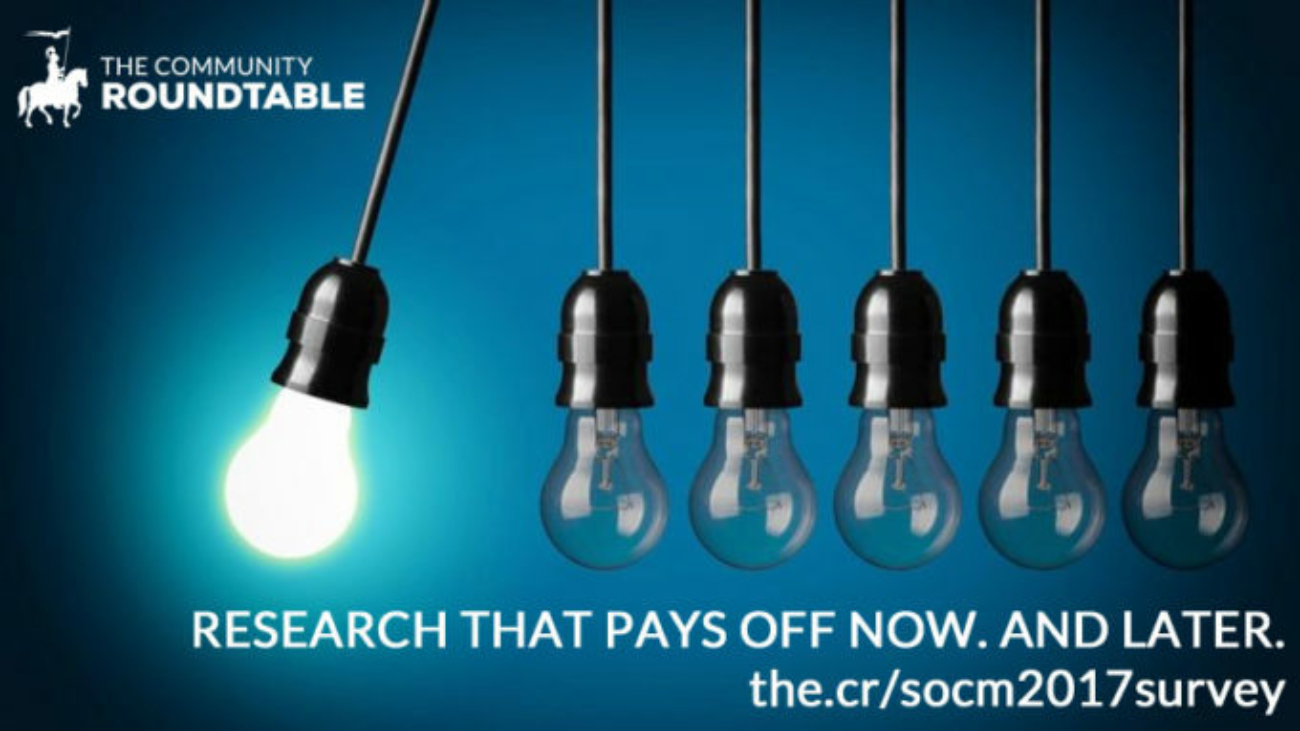The Community Roundtable’s ‘State of Community Management’ annual analysis of online communities is one of the resources that I use almost every day in my role as a digital strategist. It contains vital information on what constitutes best-of-breed communities (both internal and external), how mature platforms are continuing to evolve into new areas, how the art (and therefore professional role) of community management is developing and much more. The 2016 edition is available here – I really would highly recommend that you download a copy if you’re at all interested in this topic.
The survey for this year’s edition launched a couple of months ago, and is expected to close soon:
Community managers and program owners in all communities – large and small, internal and external,
public and private, and across all industries and use cases are encouraged to take the 25-minute survey, which explores critical elements of successful communities. Survey participants receive:
- A free estimated Community Maturity Score, which compares your responses to The Community Roundtable’s database of hundreds of surveys, and gives you a sense of where your community ranks on the Community Maturity Model.
- Access to the full State of Community Management 2017 report on the day it’s made available (expected mid-May).
If you’re a community manager, and you haven’t yet taken the survey, please do so ASAP. It’s a fantastic opportunity to contribute to the understanding of progress in the profession, as well as gathering some incredibly useful information on your own community:
The 25-minute survey explores your community across the 8 competencies of the Community Maturity Model, and generate an exclusive (and private) scorecard of where you stand in:
- Strategy
- Leadership
- Culture
- Community Management
- Content and Programs
- Policies and Guidelines
- Tools
- Metrics and Measurement
Plus, you can use the included ROI calculator to get a sense of how your ROI stacks up, based on the value of answers created in your community use our ROI model.

